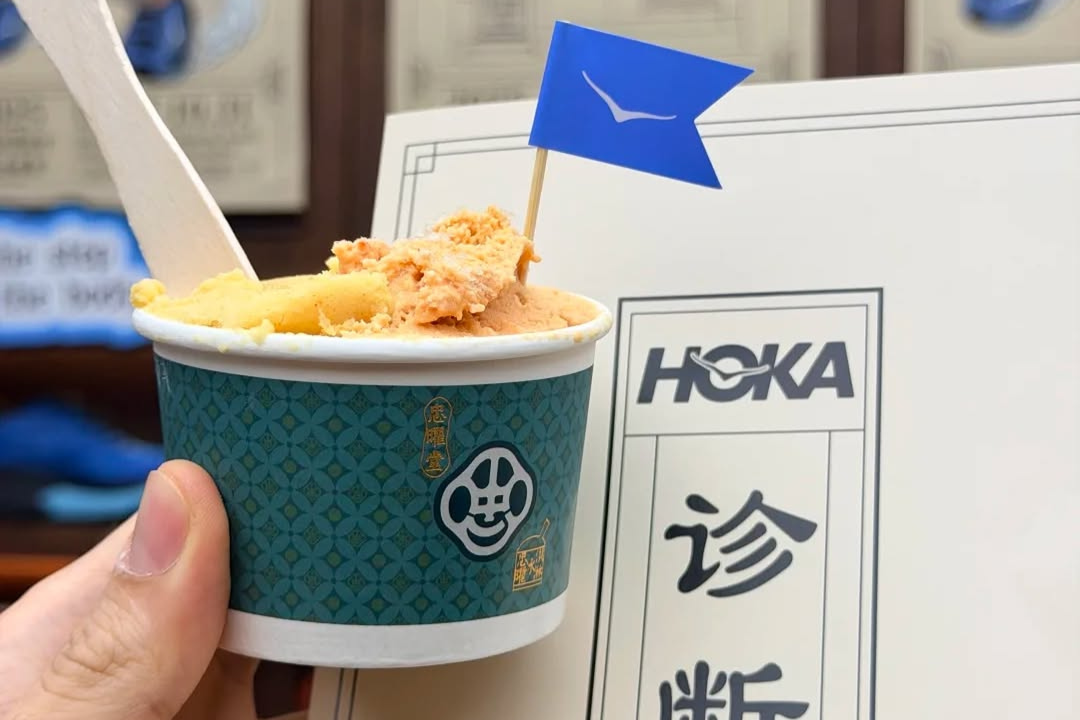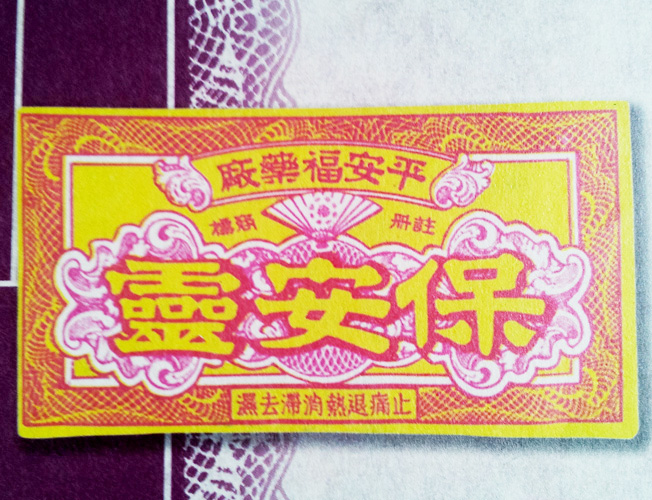China’s astonishing rise as an economic powerhouse has been coupled with a well-documented pollution problem, and mounting stress levels faced by students and workers in the hyper-competitive environment it has helped create. These in turn have been two of the biggest drivers for the growth of wellness-adjacent industries, as the country’s citizens — particularly those in its enormous cities — contend with threats to their wellbeing from within and without.
Against this backdrop, Traditional Chinese Medicine (TCM), an ancient medical practice conventionally known for being natural, pure, and gentle yet potent, has become an increasingly common choice for those looking to invest in their own longevity through traditional wisdom.
Though TCM is mostly associated with the elderly and infirm, much of China’s post-’90s generation (those born in and after 1990) have embraced TCM-guided health trends in recent years.
Related:
 Digital Diagnosis: Chinese Medicine in the WeChat EraHow does technology change “traditional” Chinese medicine?Article May 07, 2019
Digital Diagnosis: Chinese Medicine in the WeChat EraHow does technology change “traditional” Chinese medicine?Article May 07, 2019
“A post-’95 girl I work with is totally into TCM,” says Chen Yishui, a 36-year-old illustrator from Chongqing. “She thinks these magical ingredients can compensate for her crazy lifestyle.”
Indeed, there’s plenty of documentation out there on how millennials are adopting snippets of traditional medicine to offset their decidedly modern lifestyles. A popular meme from 2018 gently pokes fun at post-’90s kids for picking up the habit of soaking goji berries in a hot Thermos, a practice lifted from their elders. At the same time, young people are the force behind popular TCM weight loss and acne remedies, touted for their “superior” natural ingredients.
But losing weight and clearing pimples are more peripheral aspects of health. It is dubious whether these trends extend into believing in TCM as a medical practice, particularly during the time of a viral epidemic.
Since the news of a new coronavirus outbreak in Wuhan became official, state media has enthusiastically encouraged the use of TCM for preventive measures, immunity strengthening, and even fighting the symptoms when someone is infected. Last week China’s National Health Commission released its latest round of treatment guidelines, which prescribed hospitals integrate TCM into their programs. Many of China’s top TCM hospitals have released treatment plans of their own, along with herbal formulas that people can procure from herbalists to brew at home.

On Weibo, discussions on the effectiveness of TCM treatments have clearly marked pro-TCM and anti-TCM factions. Typically, one side cries: “Scam!” The other side cites, “5,000 years of accumulated wisdom.” On the surface, this fight appears to be between traditional and modern medicine, and it is tempting to assume that most staunch TCM supporters are older people while the detractors are young people who subscribe more to the modern science they have studied in school. But this is not necessarily the case.
There is a not-very-well-known, but very important historical caveat to all of this. Chairman Mao, a self-professed TCM nonbeliever, invented TCM as it is known now — a “scientified” holistic medical system — as part of an ongoing soft power campaign. Despite its appearance as ancient traditions distilled through centuries of practice, today’s TCM is not some holdover from the bygone imperial times, but rather part of a carefully shaped Chinese identity devised by its current ruling party.
Related:
 Should We Really “Expect Deaths to Rise” as the WHO Endorses Traditional Chinese Medicine (TCM)?Article Nov 07, 2018
Should We Really “Expect Deaths to Rise” as the WHO Endorses Traditional Chinese Medicine (TCM)?Article Nov 07, 2018
The Chinese government’s continuous efforts in upholding TCM’s legitimacy can help explain why there isn’t a clear generational divide between TCM enthusiasts and deniers.
My 66-year-old mother, a retired neurologist, tells me: “Chinese medicine is noninvasive, and strengthens the body’s constitution in the long term through nourishment and targeted adjustment of bodily functions. It doesn’t target diseases like Western medicine, but rather returns the body to a more optimal state.”
My 17-year-old cousin echoes these sentiments: “I have taken Chinese medicine for my asthma for a year, it really did help. This method was passed down thousands of years for a reason, I’m sure, and of course, it’s been proven using modern science.”
Related:
 Landmark Exposé Links TCM to Liver DiseaseArticle Aug 02, 2017
Landmark Exposé Links TCM to Liver DiseaseArticle Aug 02, 2017
I am also very familiar with this narrative about the slow and steady effect of TCM that improves the body over time, having grown up in China during the ’90s. This often serves as the basis for how TCM is perceived by those who do not reject it.
“Sometimes it could work very well for certain patients, and for others not at all,” says Cherry Xu, a 30-year-old lawyer in Hong Kong. “But as a placebo it’s not bad either.”
When you speak to people in China about TCM, a pattern often emerges. The people who vehemently reject TCM all seem to have been exposed to some variety of a TCM scam, a sadly common occurrence that mainly targets the elderly. Chen Yishui told me that she’s firmly anti-TCM because of how much money her parents have given to quacks that sold them useless, expensive trash.
For everyone else, there is no hard TCM versus Western medicine dichotomy. Most people believe in both, generally trusting Western medicine for so-called “big sicknesses” like cancer or coronary bypass, and choosing TCM for minor colds or constipation.
“For many, there is no hard TCM versus Western medicine dichotomy — most people believe in both”
“TCM is also good when nothing else works,” says Adam Qi, a 32-year-old education specialist from Hebei. “When Western medicine has failed, you can’t just give up. You can always try some TCM remedy and see if it helps.”
The TCM “Hail Mary” is something almost every Chinese person would embrace when they have nothing else to try. Even for those who insist TCM treatments must be proven effective through the scientific method, given the uncertainty looming around Covid-19, many would not say no to some mystical ingredient if it might work. Just last week, Chinese consumers cleaned out all the Shuanghuanglian oral remedies from their local pharmacies after a Weibo post from state news service Xinhua claimed it could help fight the coronavirus. Xinhua later retracted its endorsement, after drawing ire from netizens and medical practitioners alike for promoting a product with no medical proof that it could combat a coronavirus.
My cousin sounded a little sheepish when I brought up Shuanghuanglian: “Normally when the government says it is effective, it is pretty trustworthy…”
Aside from this, TCM has been strongly promoted without incident since the beginning of the month (ironic, since TCM is largely to blame for the wildlife cultivation that it is thought helped spread the virus to humans in the first place). But since there are no vaccines yet that can directly attack the viruses themselves, the moment is opportune for TCM to step into the ring and claim some glory.
Related:
 Coronavirus Stirs Rumors and Racism Towards Chinese Eating Habits and HealthOn social media, ignorant rhetoric about food and health is spreading faster than the virus itselfArticle Feb 03, 2020
Coronavirus Stirs Rumors and Racism Towards Chinese Eating Habits and HealthOn social media, ignorant rhetoric about food and health is spreading faster than the virus itselfArticle Feb 03, 2020
On February 4th, Wuhan’s Jinyintan hospital released eight patients that it said had been treated using a combination of Western and TCM remedies. Their press release noted that patients who used TCM seemed more energetic and healed faster.
It is not a claim that TCM triumphed when nothing else worked, but rather that it was some part of a successful treatment. And for many, this is the space that TCM most comfortably occupies: helpful, not harmful, complementary, but not crackpot, somehow.


















